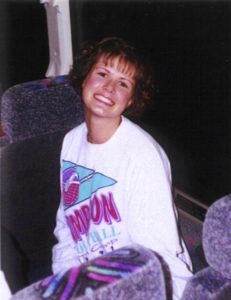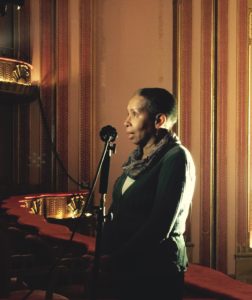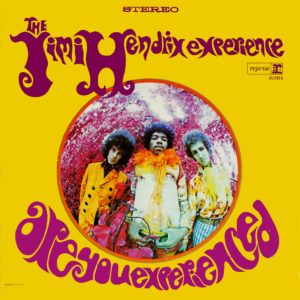Mondays with Mike: Every breath he takes…
April 9, 2018 • 5 Comments • Posted in guest blog, Mike Knezovich, Mondays with MikeA couple years ago we ran a guest post by our one-of-a-kind neighborhood friend, Steve Ferkau. Steve is, well, I think his message, written yesterday, will tell you more about him that I can. I hope you’ll give it a read, and when you’re done, you explore the links at the bottom of this post.
Eighteen years ago today, Kari passed away. In the month before she passed, she told her family how strongly she felt about organ donation. Twice. Eighteen years ago tomorrow, Kari and her family saved my life when they gave me both of her lungs.

Kari, who donated her lungs to Steve. Courtesy Steve Ferkau.
“Saved my life” is such a trivial phrase for what they did. I lived 39 years with crappy, cystic fibrosis lungs that had been slowly suffocating me their last three years. I never, ever, ever-ever imagined my life could be this amazing – that just breathing could feel this amazing. For 39 years I never understood that there could be something beyond exhaustion. I do now. And aside from me — Kari gave me another eighteen years to be with my Laura. (Sometimes, much to her dismay! I can be a handful….)
I never met Kari — but for the past 16 years, I’ve found myself surrounded by people who knew and loved Kari. And now I feel much of the love Kari felt surrounded by — and it feels pretty amazing. I only know Kari through her family and friends — but what I do know about was so very worthy of their love. And they make me feel very honored to be on the receiving end of some of that love too. As of tomorrow — for the past eighteen years — I’ve tried my bestest to honor her, and keep her smile and spirit alive in people’s hearts — and I promise to continue as long as I can.
Knowing all I know about Kari and her family and her friends — were I given the choice between me and Kari, Kari would still be here. I’m so thankful for everything she and her family have given me. Kari is on my mind and in my heart throughout the day, every day — her family and friends are as well.
Love, Steve
If you are interested in donating your organs, here are some good places to start.
- https://www.donatelife.net/ lets you link to information and register for any state.
- https://www.lifegoeson.com/ gets you to the Illinois registry.
- https://www.organdonor.gov/index.html is a good general reference on organ donation and transplantation.



 I have a love/hate relationship with my computer.
I have a love/hate relationship with my computer.